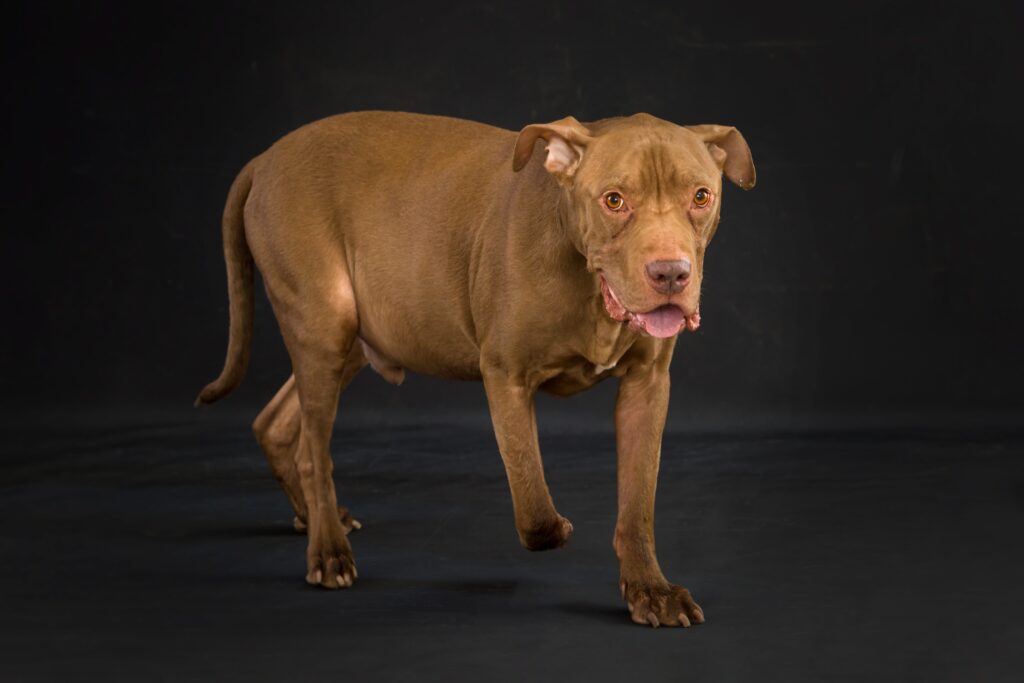Bloated Abdomen: A Potentially Life-Threatening Emergency

Bloat, a condition known as gastric dilatation-volvulus (GDV), is one of the most serious and potentially life-threatening emergencies your furry friend can face. Our team at McKinney Emergency Veterinary Clinic is fully trained and equipped to provide the needed emergency care for your furry companion using the latest technology and techniques. Here’s all you need to know about GDV and how to safeguard your beloved pet.
What Is Bloat?
Bloat, or GDV, is one of the most serious non-traumatic emergencies we treat. In the early stages, your pet’s stomach may start filling with gas, causing gastric dilatation. As the gas-filled stomach becomes extended, it can progress to a volvulus, where the stomach twists upon itself, sometimes trapping gas and blocking the entrance and exit to the stomach.
GDV is not only uncomfortable but can also cut off the stomach’s vital supply, posing a serious risk to your furry companion’s health. Without treatment, it can result in the death of the stomach and spleen, and, ultimately, the death of the affected pet. Emergency surgery is required within minutes to a few hours to save your precious pet’s life.
What Are the Causes of Bloat?
While the exact causes of bloat remain unknown, there are factors that can increase the risk of developing this serious condition, including the following:
- Breed: Bloat primarily affects deep-chested male dogs, although any dog and sometimes even cats can develop this life-threatening disorder.
- Eating Habits: Pets who eat too fast or those who consume large meals are at a higher risk.
- Exercise: Vigorous exercise before or after eating can contribute to bloat.
- Stress: Stress and anxiety may contribute to bloat – a recent study showed that dogs that were calm and relaxed were at a lower risk.
- Illness: Illnesses that cause decreased intestinal motion can increase the risk of GDV.
- Age: Older dogs, especially those over 7, are at high risk of developing GDV.
What Are the Warning Signs of Bloat?
Here’s a look at some warning signs of bloat:
- A distended, hard abdomen
- Signs of pain, such as whining or whimpering
- Dry heaving
- Unproductive retching or vomiting
- Excessive drooling
- Shortness of breath
- Pale gums
- Restlessness or pacing
- Lethargy or collapse
If you observe any of these symptoms, don’t wait. Contact McKinney Emergency Pet Clinic for immediate care. Time is of the essence when dealing with bloat.
How Is Bloat Treated?
Upon arrival, our veterinary team will stabilize your pet and provide any needed pain relief. We may conduct diagnostic tests, such as digital x-rays or abdominal ultrasound scans, to confirm the diagnosis and determine the severity of the condition. We may also run blood tests to check for signs of shock or organ dysfunction. Our team will work fast to provide your beloved pet with the needed care as soon as possible.
Treatment for GDV usually involves emergency surgery under general anesthesia. Our skilled emergency veterinary team will decompress and untwist your pet’s stomach. We may also attach the stomach to the abdominal wall, a procedure known as gastropexy, to prevent the recurrence of GDV.
Post-Operative Care and Monitoring
After surgery, we will closely monitor your furry companion at our state-of-the-art facility. Recovery may include pain management, antibiotics to prevent infection, and gradually reintroducing food and water. Our team will provide you with post-operative care instructions to help ensure a smooth recovery at home.
Emergency Bloat Treatment Care Near Me in McKinney, TX
If your pet shows signs of bloat, contact McKinney Emergency Veterinary Clinic right away. Our dedicated team will provide your furry friend with prompt, potentially life-saving care with compassion and expertise. We understand how stressful emergencies can be and are here to support you and your beloved pet every step of the way.
If your pet experiences an emergency, please contact us at 469-820-0233. We are dedicated to providing the best possible care to household pets in McKinney, TX, and the surrounding communities.
